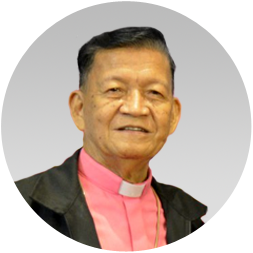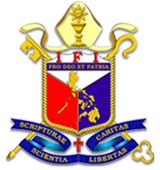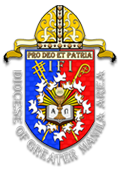Gospel Reflection on the third Sunday after Pentecost
June 13, 2021 | Mark 4:26-34

By: Bp. Warlito Baldomero
1175 Industria cor. Central St. Pandacan Manila
- The seed grows of itself (Mark 4:26-29)
- The Mustard seed (Mark 4:30-32)
Jesus was regarded and looked upon as the “greatest” rabbi (teacher) in his time both by his disciples and the crowd who are used to listening to him. These were the people who came from different places, namely Galilee, from Jerusalem, from Idumea, from beyond the Jordan and from the neighborhood of Tyre and Sidon (Mark 3:7-8) In comparison to other teachers, His greatness as a teacher is yet unsurpassed even by the Chinese Sage Confucius until today. The four Evangelists compiled his teachings and the universal Church called it the Good News or Gospel. His listeners, after listening to him, could only conclude that He taught as one having authority and not as the Scribes or Teachers of the Law (Mark 1:22). His methods of teaching was experiential and true to life. He used simple stories known as Parables which are illustrative and within the realm of the understanding of the common tao. He was their favorite teacher that they followed and hanged around him wherever he went be it in the seashores, the field, the plains, the meadows or on the mount.
In our Gospel for today according to St. Mark in chapter 4 verses 26 to 32, Jesus was teaching the crowd and His disciples about the Kingdom of God or the Reign of God. Almost all of the people during that time were filled with anxiety to see the actual establishment of the New Heaven and the New Earth as prophesied by Prophet Isaiah. The more their anxiety was heightened when they heard the proclamation of the Lord Jesus, saying: “This is the time of fulfillment. The Kingdom of God is at hand. Repent and believe in the Gospel” (Mark 1:15).
On the eve of the new year 2000, a similar scenario occurred. Many people believed that the End-time or the so-called “The Rapture” is going to happen that night and thousands of people gathered in the Quezon City Circle gathered overnight to personally witness the breaking in of the “New Heaven and the New Earth”. In the following day, they realized that the proclamation was a false alarm.
Even in the time of Jesus, many were already anxious to witness and experience the disclosure of the “end-time event”. Jesus, however, never mentioned of any exact time and date when it will happen but instead cautioned his followers to stay alert and vigilant in “reading the signs of the time” (Mark 13: 2831). He made it clear to his listeners that only God the Father knows the exact occurrence (Mark 13:32).
The main objective of Jesus in applying the use of Parables in his teaching ministry is to unveil the mystery of the Kingdom of God in a way that the common tao can easily comprehend it. By using the Parable of the Seed, He wants us to understand that His advent to this planet earth, his Incarnation is already the inauguration of the Reign of God very similar to the planting of the seed. St. John the Baptist was acting as his forerunner, who paved the way of his advent by calling the sinners to repentance through the Baptism of Repentance. He was actually clearing the ground of thorns and rocks to hasten the germination of the seed.
Jesus himself, the anointed Servant-King and inaugurator of the Reign of God on Earth as it is in heaven and portrayed himself in the parable as the Mustard Seed proclaimed: "The Spirit of the Lord is on me, because he has anointed me to proclaim good news to the poor. He has sent me to proclaim freedom for the prisoners and recovery of sight for the blind, to set the oppressed free and announce that the time has come when the Lord will save his people (Luke 4:18).
We who have been christened in the Holy Sacrament of Baptism must stand tall and firm like mustard trees offering our arms to protect the right to life of the marginalized and deprived people in our society more so at this time of the pandemic.


